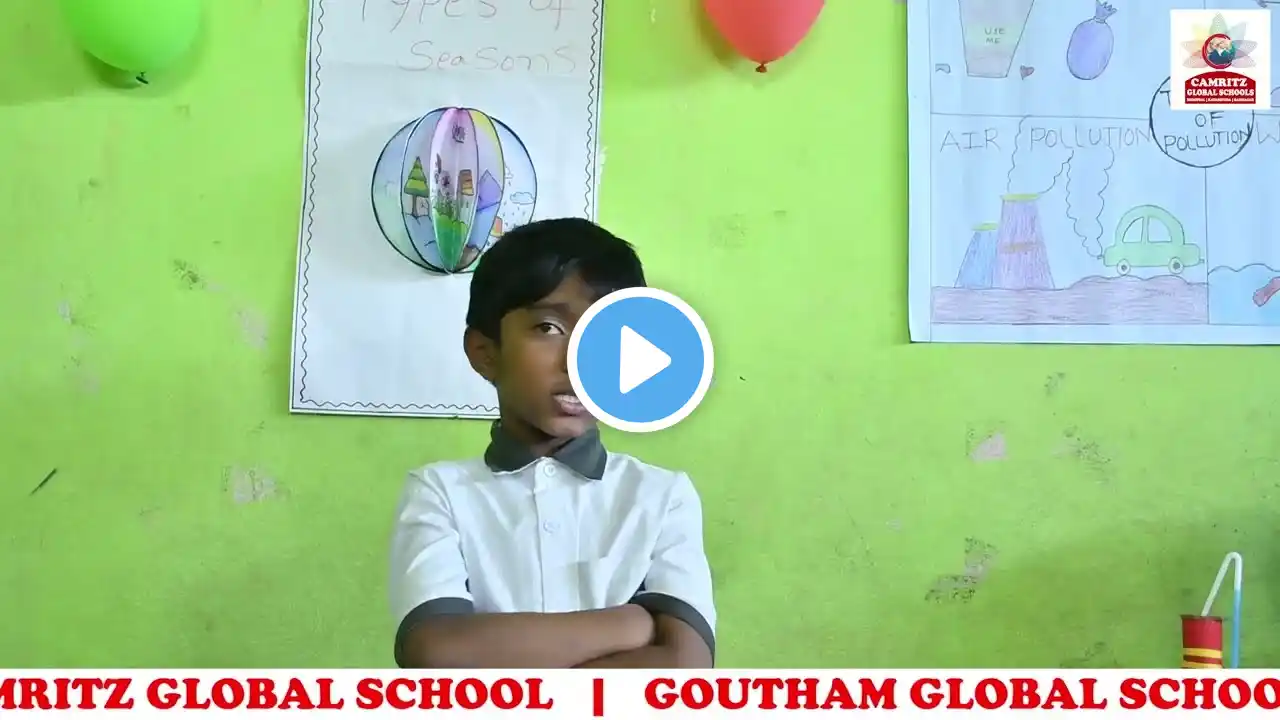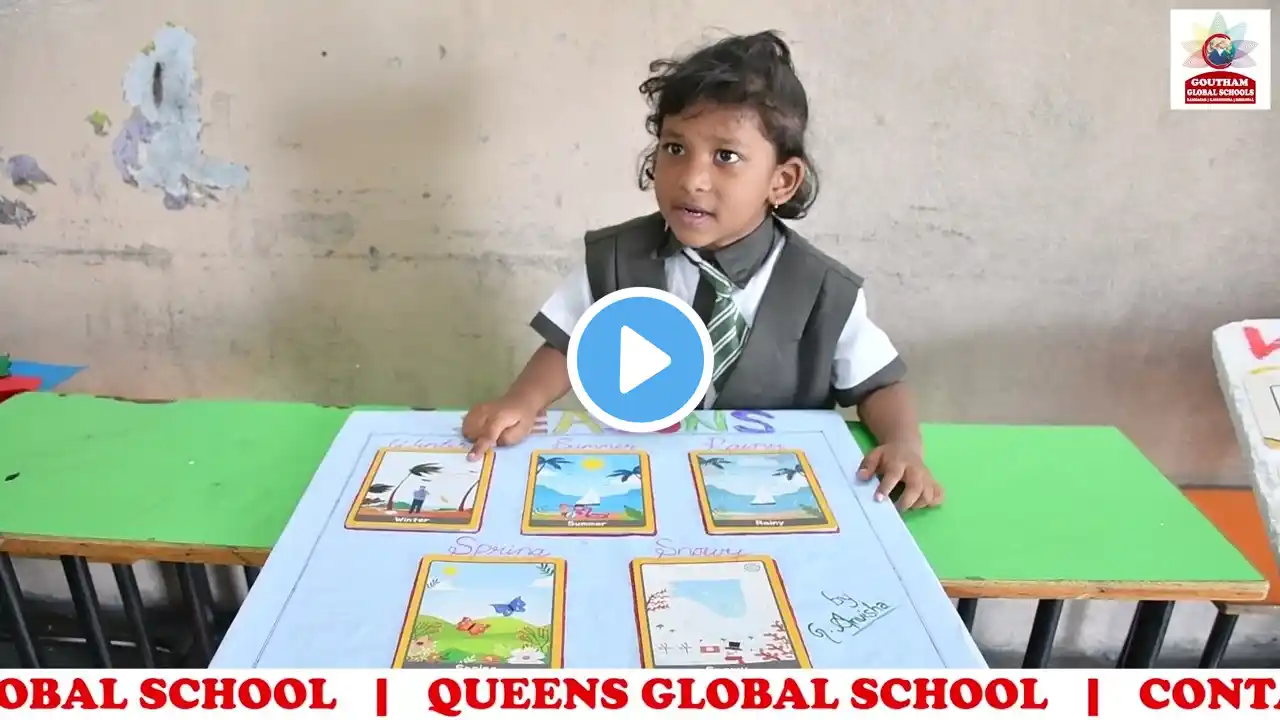
SUMMER SEASON SCIENCE FAIR PROJECT WORK | QUEENS GLOBAL SCHOOL #camritz | #goutham | #queens
Project Title: Summer Season Science Fair Project Objective: The objective of this science fair project is to explore the characteristics and effects of the summer season, focusing on its environmental, biological, and physical impacts. This project will investigate various aspects of summer, including temperature changes, daylight hours, and how different organisms adapt to this season. Additionally, it will highlight the human and ecological importance of the summer season. Project Description: Summer is one of the four seasons, and it is characterized by warmer temperatures, longer days, and changes in the environment. The project will explore how the Earth's position relative to the Sun leads to the warmer temperatures during summer and how this season affects various aspects of life, from plant growth to animal behavior. The project will also examine how people and animals cope with the heat and why certain activities, like swimming, are popular in this season. The project will cover: Why Summer is Hot: The science behind the Earth’s tilt and its orbit around the Sun, causing the increased warmth during the summer months. Changes in Daylight: Exploring how the length of daylight increases during summer and how this affects the environment and living organisms. Effects of Heat on the Environment: How summer temperatures affect plant growth, water cycles, and the behavior of animals. Adaptations of Animals to Summer: How different animals cope with higher temperatures (e.g., animals that stay cool, migrate, or are nocturnal). Human Activities in Summer: Why people engage in activities like swimming, going to the beach, or having barbecues. Also, how humans adapt to summer through hydration, sun protection, and staying cool. Health and Safety: Discussing the importance of staying hydrated, using sunscreen, and protecting yourself from heat exhaustion and sunburns. Summer's Role in the Ecosystem: Understanding how summer impacts the food chain and ecosystem, including the blooming of flowers, the production of fruit, and the migration of animals. Research Method: Observation: Track the changes in weather and daylight over a period of time. You could measure the temperature at different times of day or observe how plants and animals behave as summer approaches. Conduct Experiments: Simple experiments to demonstrate heat effects, such as how different materials absorb and retain heat (e.g., dark vs. light-colored materials), or how the length of daylight affects plant growth. Research: Use books, articles, and online resources to understand the scientific principles behind the summer season. Explore topics like Earth’s tilt, the water cycle, and how animals adapt to heat. Interviews: If possible, interview biologists, meteorologists, or even athletes about how the summer season impacts living organisms and human activity. Project Sections: Introduction: Introduce the concept of seasons and explain what makes summer unique. Discuss the Earth’s orbit, tilt, and how they influence the temperature during summer. Why Summer is Hot: Explore the Earth's axial tilt and how this causes more direct sunlight during the summer months. Include a diagram of the Earth’s tilt and orbit around the Sun to show why certain regions experience summer when others don’t. Changes in Daylight: Show how the length of daylight increases in summer and how this affects living organisms, such as plants growing faster and animals becoming more active. You could track the number of daylight hours over the course of a month. Effects of Heat on the Environment: Discuss the impact of summer heat on plant growth, water availability, and how animals adapt to the temperature. You could also explain the water cycle, showing how summer temperatures can influence evaporation and precipitation. Human Activities in Summer: Explore how people typically spend time during summer, such as swimming, going to the beach, or having barbecues. Explain the importance of staying cool, hydrating, and protecting the skin from sunburns. Health and Safety in Summer: Discuss health issues related to heat, such as heat exhaustion, dehydration, and sunburn, and how to stay safe in the summer. Include tips on how to protect oneself from the sun, such as using sunscreen, wearing protective clothing, and drinking enough water. Conclusion: Summarize the importance of summer and its impact on the Earth’s environment and living organisms. Reflect on how the summer season influences our daily lives, health, and activities. #SummerSeason #ScienceOfSeasons #EarthTilt #HeatEffects #AnimalAdaptations #SummerHeat #HumanActivities #Sunscreen #DaylightHours #ScienceFairProject #EcosystemImpact #SummerSafety #Biology #Meteorology #EnvironmentalScience





